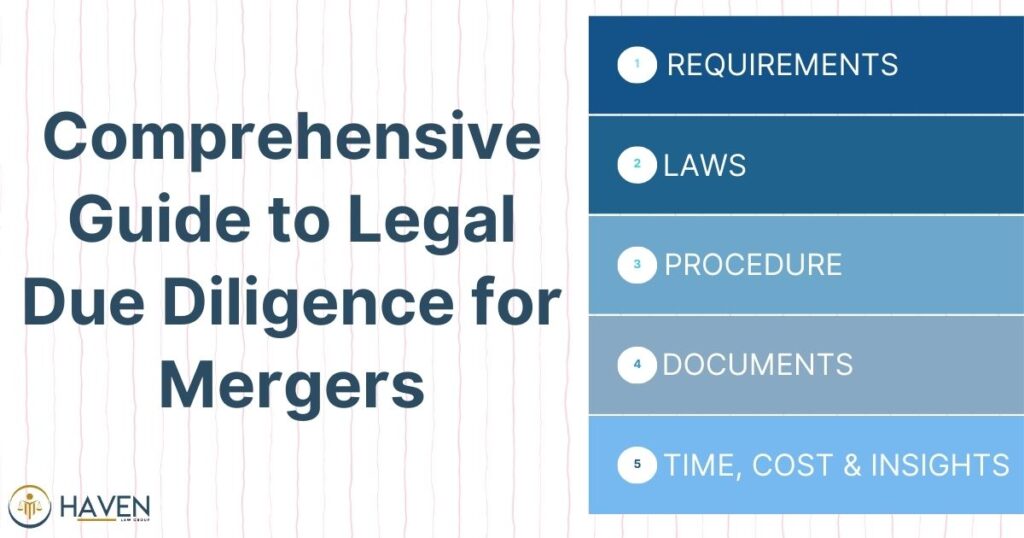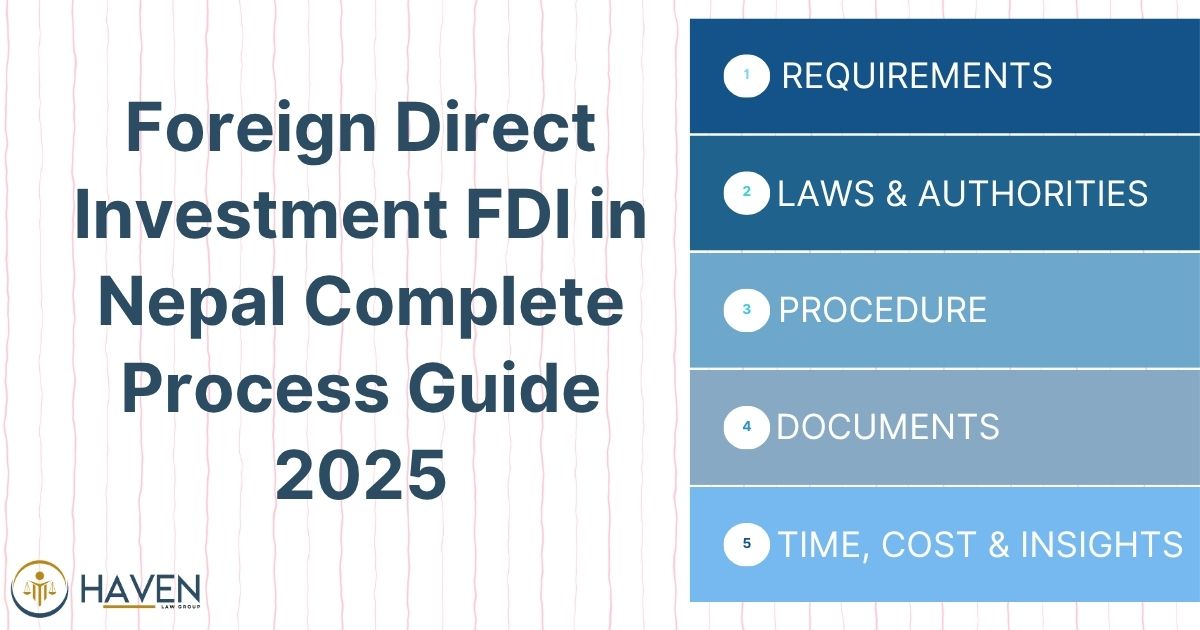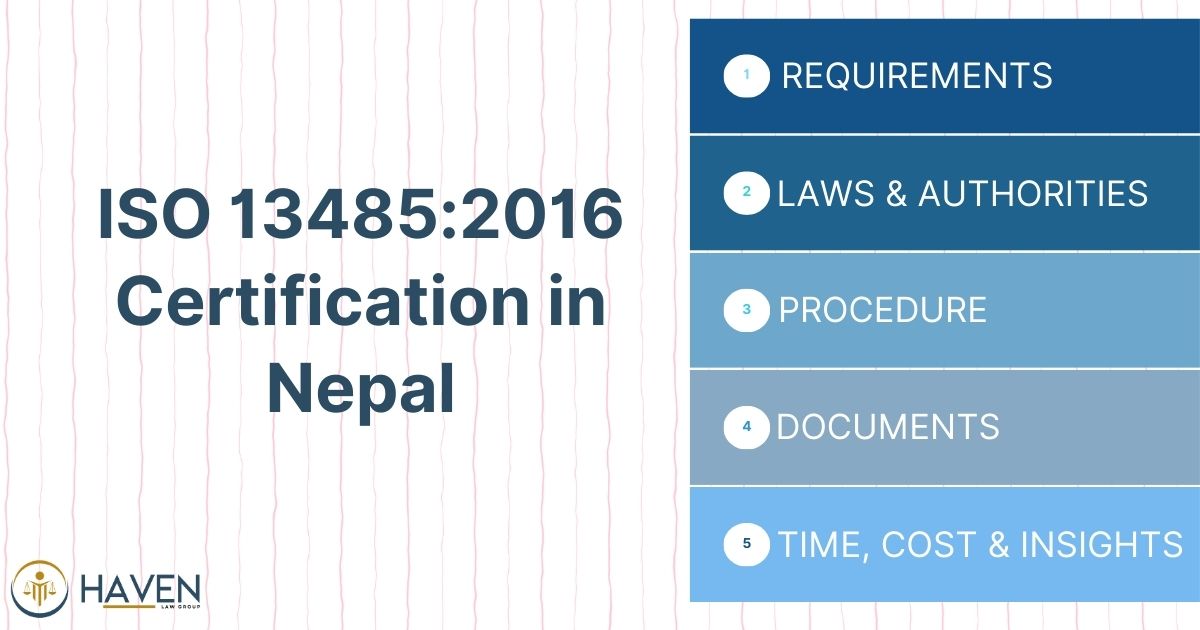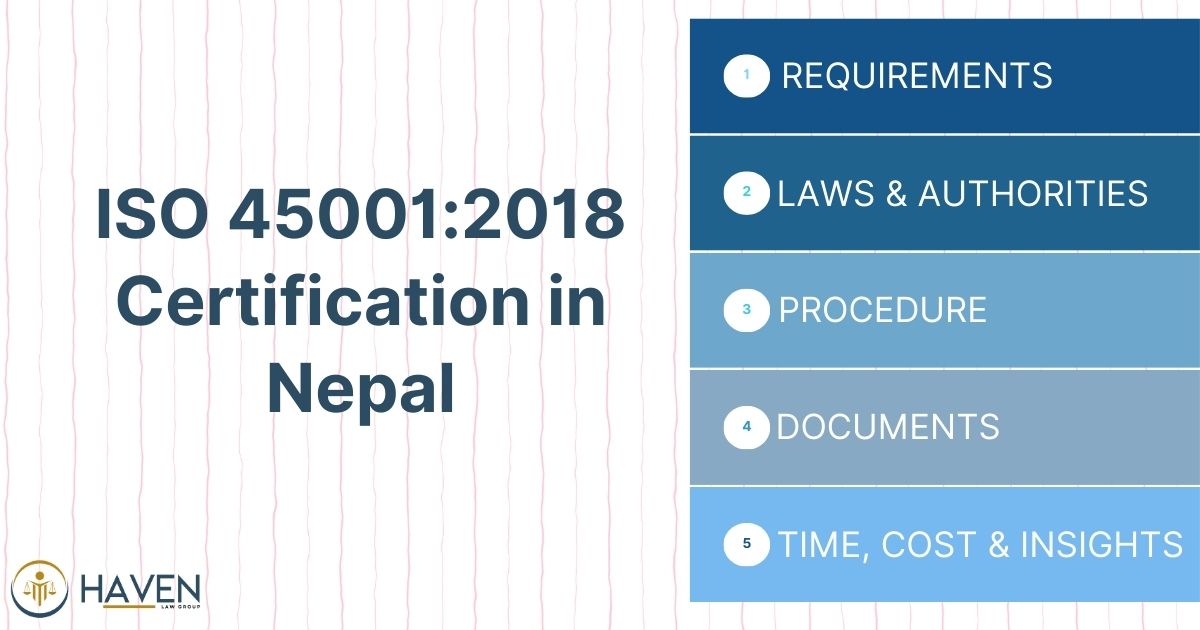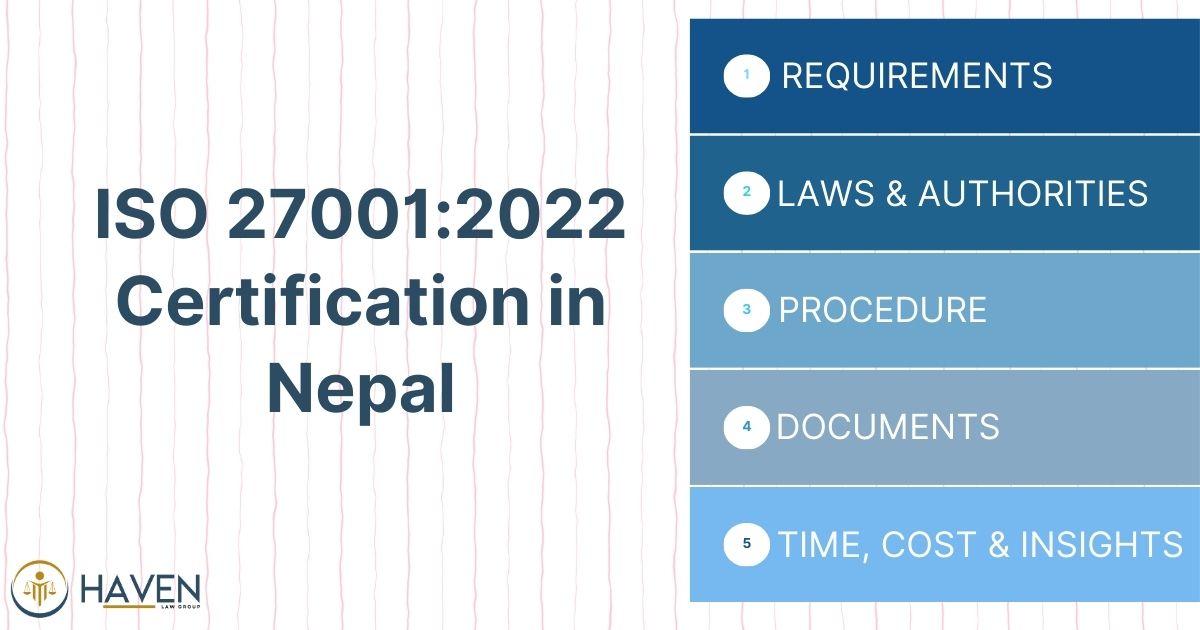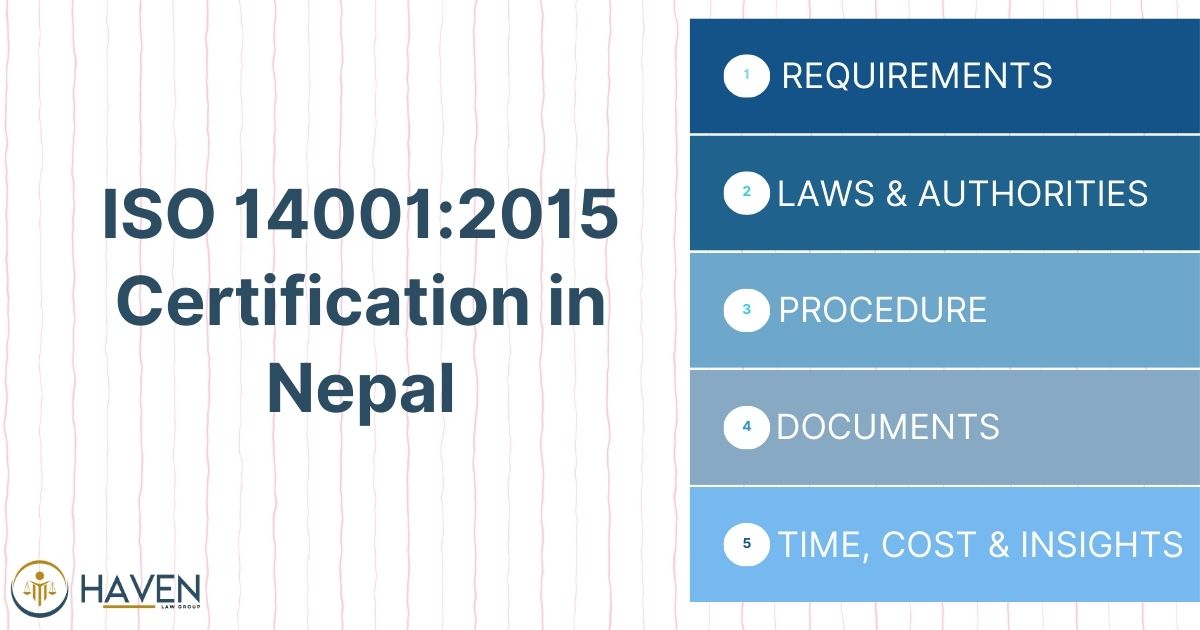Introduction
Legal due diligence is a critical process in mergers and acquisitions, involving a thorough examination of the target company’s legal affairs. This comprehensive guide explores the intricacies of legal due diligence in mergers, providing insights into its significance, key focus areas, and the steps involved. Understanding the legal landscape of a potential merger is essential for making informed decisions and mitigating risks associated with the transaction.
What is Legal Due Diligence?
Legal due diligence is a systematic investigation and analysis of a target company’s legal affairs, conducted by the acquiring company or its legal representatives. This process involves reviewing various legal documents, contracts, agreements, and compliance records to assess the target company’s legal standing and potential risks. The primary objective of legal due diligence is to uncover any legal issues that may affect the merger’s success or the acquiring company’s interests. This thorough examination helps in identifying potential liabilities, regulatory compliance issues, and contractual obligations that may impact the merger’s value or feasibility.
Importance of Due Diligence in Mergers
Due diligence plays a pivotal role in mergers by providing a comprehensive understanding of the target company’s legal landscape. This process helps in:
- Identifying potential legal risks and liabilities
- Assessing the target company’s compliance with applicable laws and regulations
- Evaluating the validity and enforceability of contracts and agreements
- Uncovering any pending or potential litigation
- Verifying the ownership of intellectual property rights
- Assessing the impact of existing employment agreements and labor issues
- Identifying any regulatory approvals required for the merger
By conducting thorough due diligence, the acquiring company can make informed decisions, negotiate better terms, and develop strategies to mitigate potential risks associated with the merger.
Key Areas to Focus On During Due Diligence
Legal due diligence in mergers encompasses several key areas that require careful examination:
- Corporate structure and governance
- Contracts and agreements
- Intellectual property rights
- Employment and labor issues
- Regulatory compliance
- Litigation and disputes
- Real estate and property matters
- Environmental compliance
- Tax liabilities and compliance
- Data protection and privacy
Each of these areas requires a detailed review of relevant documents, records, and practices to assess potential risks and liabilities that may impact the merger.
Documents Required for Legal Assessment
The legal due diligence process involves reviewing a wide range of documents to assess the target company’s legal standing. Some essential documents include:
- Articles of incorporation and bylaws
- Shareholder agreements
- Board meeting minutes
- Material contracts and agreements
- Intellectual property registrations and licenses
- Employment contracts and policies
- Regulatory permits and licenses
- Litigation records and settlement agreements
- Real estate deeds and leases
- Tax returns and audit reports
- Data protection and privacy policies
These documents provide valuable insights into the target company’s legal affairs and help identify potential issues that may affect the merger.
Steps in the Due Diligence Process
The legal due diligence process typically involves the following steps:
- Defining the scope of due diligence
- Preparing a due diligence request list
- Establishing a secure data room for document sharing
- Reviewing and analyzing documents
- Conducting interviews with key personnel
- Identifying potential legal issues and risks
- Preparing a due diligence report
- Discussing findings with the client
- Developing strategies to address identified issues
- Incorporating findings into the merger agreement
Each step requires careful attention to detail and collaboration between legal advisors and the acquiring company to ensure a thorough assessment of the target company’s legal affairs.
Identifying Potential Legal Risks
Identifying potential legal risks is a critical aspect of due diligence in mergers. Some common legal risks include:
- Undisclosed liabilities or contingent liabilities
- Non-compliance with regulatory requirements
- Pending or potential litigation
- Intellectual property infringement claims
- Breach of material contracts
- Environmental liabilities
- Employment-related issues
- Tax liabilities or disputes
- Data protection and privacy violations
- Antitrust concerns
Recognizing these risks early in the due diligence process allows the acquiring company to assess their potential impact on the merger and develop appropriate mitigation strategies.
Role of Contracts and Agreements in Mergers
Contracts and agreements play a crucial role in mergers and are subject to careful scrutiny during due diligence. Key aspects to consider include:
- Validity and enforceability of contracts
- Change of control provisions
- Assignment and novation requirements
- Termination clauses and penalties
- Exclusivity agreements
- Non-compete and non-solicitation provisions
- Intellectual property licenses and transfers
- Indemnification clauses
- Representations and warranties
- Dispute resolution mechanisms
A thorough review of contracts and agreements helps identify potential obstacles to the merger and ensures a smooth transition of contractual relationships post-merger.
Timeline for Conducting Due Diligence
The timeline for conducting legal due diligence varies depending on the complexity of the merger and the size of the target company. Typically, the process can take anywhere from 4 to 12 weeks. Factors affecting the timeline include:
- The scope of due diligence
- The volume of documents to be reviewed
- The complexity of the target company’s legal affairs
- The availability of information and cooperation from the target company
- The number of jurisdictions involved
- The need for specialized expertise in certain areas
- The discovery of unexpected legal issues
Establishing a realistic timeline and allocating sufficient resources are essential for conducting thorough due diligence within the constraints of the merger process.
Cost of Legal Due Diligence
The cost of legal due diligence can vary significantly depending on various factors. Some key considerations include:
- The size and complexity of the target company
- The scope of due diligence
- The number of legal advisors involved
- The need for specialized expertise
- The duration of the due diligence process
- Travel and accommodation expenses for on-site reviews
- Data room and document management costs
- Translation services for cross-border mergers
- Fees for external consultants or experts
- The use of technology and AI-powered tools for document review
While legal due diligence can be costly, it is a necessary investment to mitigate risks and ensure the success of the merger.
Checklist for Effective Due Diligence
A comprehensive checklist for effective legal due diligence should include:
- Review of corporate documents and records
- Analysis of material contracts and agreements
- Examination of intellectual property rights and licenses
- Assessment of employment and labor issues
- Evaluation of regulatory compliance
- Review of litigation and dispute records
- Analysis of real estate and property matters
- Assessment of environmental compliance
- Review of tax liabilities and compliance
- Evaluation of data protection and privacy practices
- Examination of insurance coverage
- Review of financial statements and audit reports
- Assessment of antitrust considerations
- Evaluation of foreign operations and compliance
- Review of cybersecurity measures
This checklist serves as a guide to ensure all critical areas are covered during the due diligence process.
Relevant Laws Governing Mergers
Mergers in Nepal are governed by various laws and regulations, including:
- Companies Act, 2063 (2006)
- Securities Act, 2063 (2007)
- Competition Promotion and Market Protection Act, 2063 (2007)
- Foreign Investment and Technology Transfer Act, 2075 (2019)
- Banks and Financial Institutions Act, 2073 (2017)
- Nepal Rastra Bank Act, 2058 (2002)
- Income Tax Act, 2058 (2002)
- Labor Act, 2074 (2017)
- Industrial Enterprises Act, 2076 (2020)
- Intellectual Property Rights Act, 2059 (2002)
Understanding and complying with these laws is essential for ensuring the legality and success of mergers in Nepal.
Common Challenges in the Due Diligence Process
Legal due diligence often faces several challenges, including:
- Limited access to information
- Incomplete or disorganized records
- Time constraints
- Language barriers in cross-border mergers
- Conflicting information from different sources
- Difficulty in assessing the impact of pending litigation
- Complexity of regulatory compliance issues
- Identifying and valuing intangible assets
- Assessing cybersecurity risks
- Dealing with confidentiality concerns
Overcoming these challenges requires effective communication, collaboration, and the use of appropriate tools and methodologies.
Role of Legal Advisors in Mergers
Legal advisors play a crucial role in mergers by:
- Conducting thorough due diligence
- Identifying and assessing legal risks
- Advising on regulatory compliance requirements
- Drafting and negotiating merger agreements
- Structuring the transaction to minimize legal risks
- Assisting with regulatory filings and approvals
- Advising on employee-related matters
- Addressing intellectual property issues
- Providing guidance on tax implications
- Assisting with post-merger integration
Their expertise and guidance are essential for navigating the complex legal landscape of mergers and ensuring a successful transaction.
Post-Due Diligence Steps and Integration
After completing due diligence, several steps are necessary for successful integration:
- Addressing identified legal issues
- Finalizing the merger agreement
- Obtaining necessary regulatory approvals
- Implementing risk mitigation strategies
- Transferring contracts and agreements
- Integrating corporate governance structures
- Harmonizing policies and procedures
- Addressing employee-related matters
- Consolidating intellectual property rights
- Implementing data protection and privacy measures
Careful planning and execution of these steps are crucial for realizing the benefits of the merger and minimizing potential legal risks.
FAQs
1. What is legal due diligence?
Legal due diligence is a comprehensive examination of a target company’s legal affairs, conducted to assess potential risks and liabilities associated with a merger or acquisition. It involves reviewing various legal documents, contracts, and compliance records to evaluate the target company’s legal standing and identify any issues that may impact the transaction.
2. Why is due diligence important in mergers?
Due diligence is essential in mergers as it helps identify potential legal risks, assess regulatory compliance, evaluate contractual obligations, and uncover any hidden liabilities. This process enables the acquiring company to make informed decisions, negotiate better terms, and develop strategies to mitigate potential risks associated with the merger.
3. How long does due diligence take?
The duration of due diligence varies depending on the complexity of the merger and the size of the target company. Typically, the process can take anywhere from 4 to 12 weeks. Factors such as the scope of due diligence, volume of documents, and complexity of legal affairs can influence the timeline.
4. What documents are reviewed?
During legal due diligence, a wide range of documents are reviewed, including articles of incorporation, bylaws, shareholder agreements, material contracts, intellectual property registrations, employment contracts, regulatory permits, litigation records, real estate deeds, tax returns, and data protection policies. These documents provide insights into the target company’s legal standing and potential risks.
5. Are legal advisors essential for due diligence?
Yes, legal advisors are essential for conducting thorough due diligence in mergers. Their expertise is crucial for identifying and assessing legal risks, ensuring regulatory compliance, drafting and negotiating merger agreements, and providing guidance on various legal aspects of the transaction. Legal advisors play a vital role in navigating the complex legal landscape of mergers and ensuring a successful outcome.
